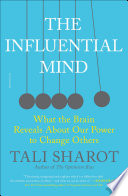Summary
In 'Persuasion,' Robert Cialdini delves into the intricate mechanisms of influence, outlining the psychological principles that underpin effective persuasion. The book is structured around six core principles: reciprocity, commitment and consistency, social proof, authority, liking, and scarcity. Cialdini draws on extensive research and real-world examples to illustrate how these principles operate in everyday life, making the content relatable and applicable. The overarching purpose of the book is to equip readers with the knowledge and tools to become more effective persuaders while also helping them recognize when they are being influenced by others.
Cialdini begins by emphasizing the importance of understanding the psychology behind persuasion. He argues that being aware of these principles not only enhances one's ability to influence others but also fosters critical thinking skills. The book encourages readers to reflect on their own experiences with persuasion, both as persuaders and as subjects of influence.
The principle of reciprocity serves as a foundational concept in Cialdini's exploration of persuasion. He illustrates how acts of kindness can create a sense of obligation, making it a powerful tool in negotiations and marketing. By understanding this principle, readers can learn to cultivate goodwill and trust in their interactions.
Commitment and consistency are explored through the lens of human behavior, highlighting how small commitments can lead to larger ones. Cialdini provides practical strategies for leveraging this principle in business and personal relationships, emphasizing the importance of fostering long-term loyalty.
Social proof is another key principle that Cialdini delves into, demonstrating how individuals often look to others for guidance in decision-making. He provides insights into how testimonials and popularity can influence consumer behavior, particularly in the age of social media. By harnessing social proof, readers can create a sense of urgency and desirability around their ideas or products.
The principle of authority is examined in depth, with Cialdini discussing how perceived expertise can significantly impact persuasion. He cautions against blind obedience to authority figures and encourages readers to critically assess the sources of influence in their lives.
Liking is a principle that underscores the importance of building rapport and personal connections. Cialdini shares strategies for fostering liking, emphasizing the role of genuine interest and common ground in enhancing persuasive efforts.
Finally, the principle of scarcity is explored, highlighting how perceived limitations can drive desire and urgency. Cialdini provides practical insights into how this principle can be effectively communicated in marketing and personal interactions.
Overall, 'Persuasion' serves as a comprehensive guide to understanding the art and science of influence. Cialdini's engaging writing style and wealth of examples make the content accessible and actionable. The book is not only a valuable resource for marketers and sales professionals but also for anyone looking to improve their interpersonal skills and navigate the complexities of human interaction.
















